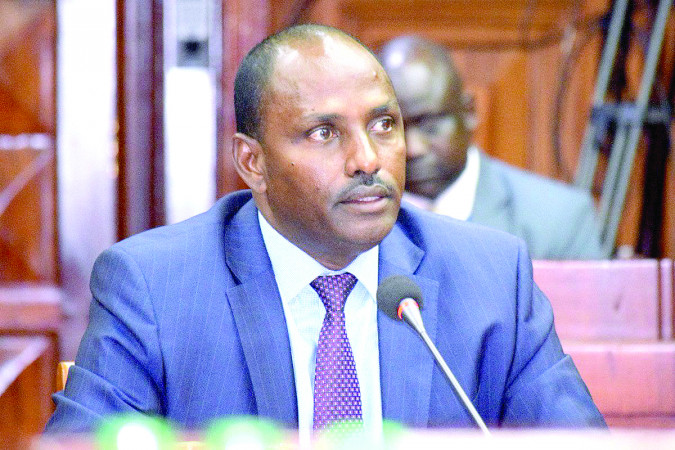Yatani signs off with advice to successor

The outgoing National Treasury Cabinet Secretary Ukur Yatani has maintained that the countrys loan portfolio is sustainable and should not be politicised or criminalised because the economy required the money. Speaking to a group of financial journalists during the official opening of a press office at the Treasury, Yatani said that during his tenure he borrowed sustainably and the country met her loan obligations.
“Our focus for borrowing has gone to multilaterals, and that is International Monetary Fund, World Bank and AFDB. That means to some extent, in some cases, the interest rates were as low as 3 per cent, while the commercial loans have around 7 per cent to even 10 per cent interest,” he said. The outgoing CS said over 50 per cent of the country’s debt stock is from multi-lateral lenders.
Externally, multilateral lenders, including the World Bank and the IMF, hold most of Kenya’s debt at an equivalent of Sh1.9 trillion while bilateral creditors and commercial banks each hold Sh1.2 trillion of Kenya’s external public and publicly guaranteed debt as at the end of June 2022.
The latest estimate of Kenya’s debt was Sh8.6 trillion as at June 2022, which is an 11.5 per cent surge in public debt from Sh7.7 trillion recorded the same time last year. “At the moment, our borrowings are very sustainable, unlike others, we never went for debt forgiveness,” he said, referring to countries that had approached China to drop their loan obligations.
Referring to the mega projects that gobbled up most of these funds as economic enablers meant to spur growth countrywide, the CS, however, seemed to put in a word of caution saying “maybe the pace of our ambition was very high, and the process made us to slightly (over) borrow.”
Nerve centre
Yatani who describes Treasury as the nerve centre of the government said the Covid-19 pandemic and the shocks it came with changed a lot of projections during his tenure. It also tested him the most during his tenure. “We were confronted with a situation no one has ever been faced with before, Covid-19. All the projections were no longer holding, businesses were closing, people were losing jobs, and others had no food.” What started as a health scare quickly turned into an economic crisis, and this led to cutting down on Value Added Taxes and income taxes to cushion the country from economic collapse.
“Cushioning the economy during that time is something I pride myself in,” Yatani noted. Yatani said incoming CS Prof Njuguna Ndung’u should take ongoing reforms in the sector and align them with the new strategies, saying, “do not reinvent the wheel”.
For example, the CS noted that they amalgamated the youth fund and provided the Credit Guarantee Scheme which is meant to enhance access to affordable credit by micro, small and medium enterprises got Sh626 million for the provision of finances to micro, small and medium enterprises through the Kenya Industrial Estate, which may work similar to the Hustlers Fund.












